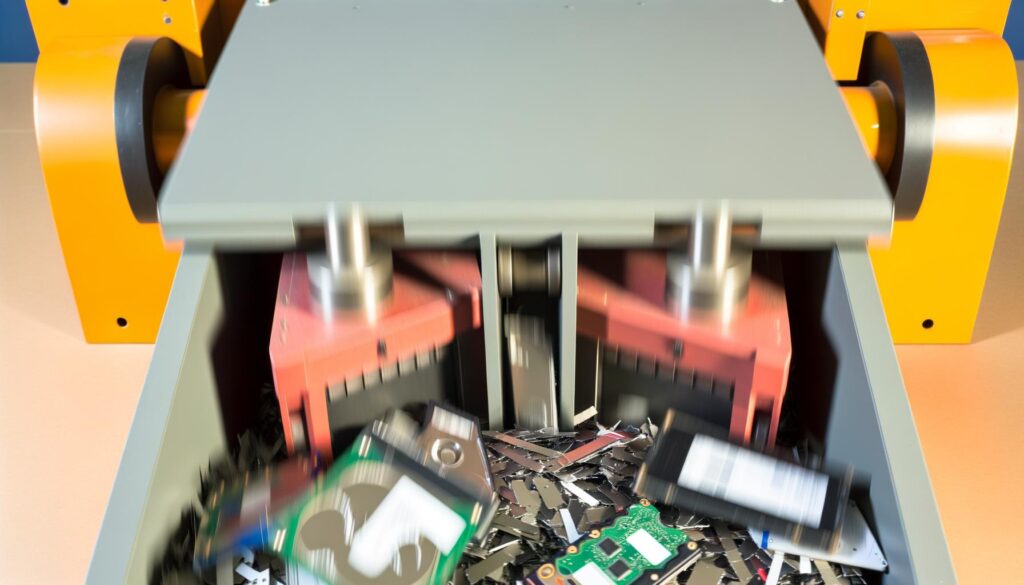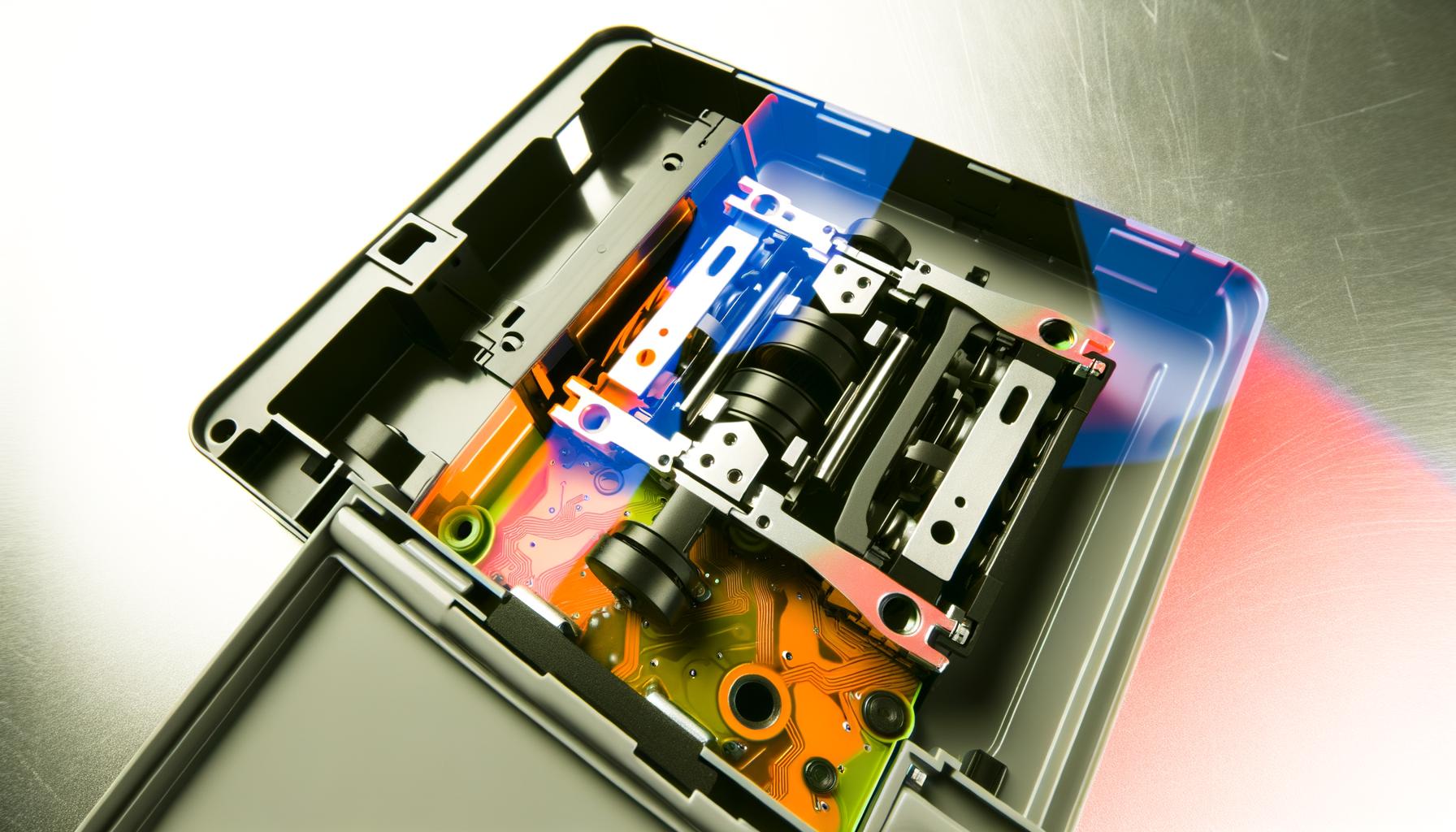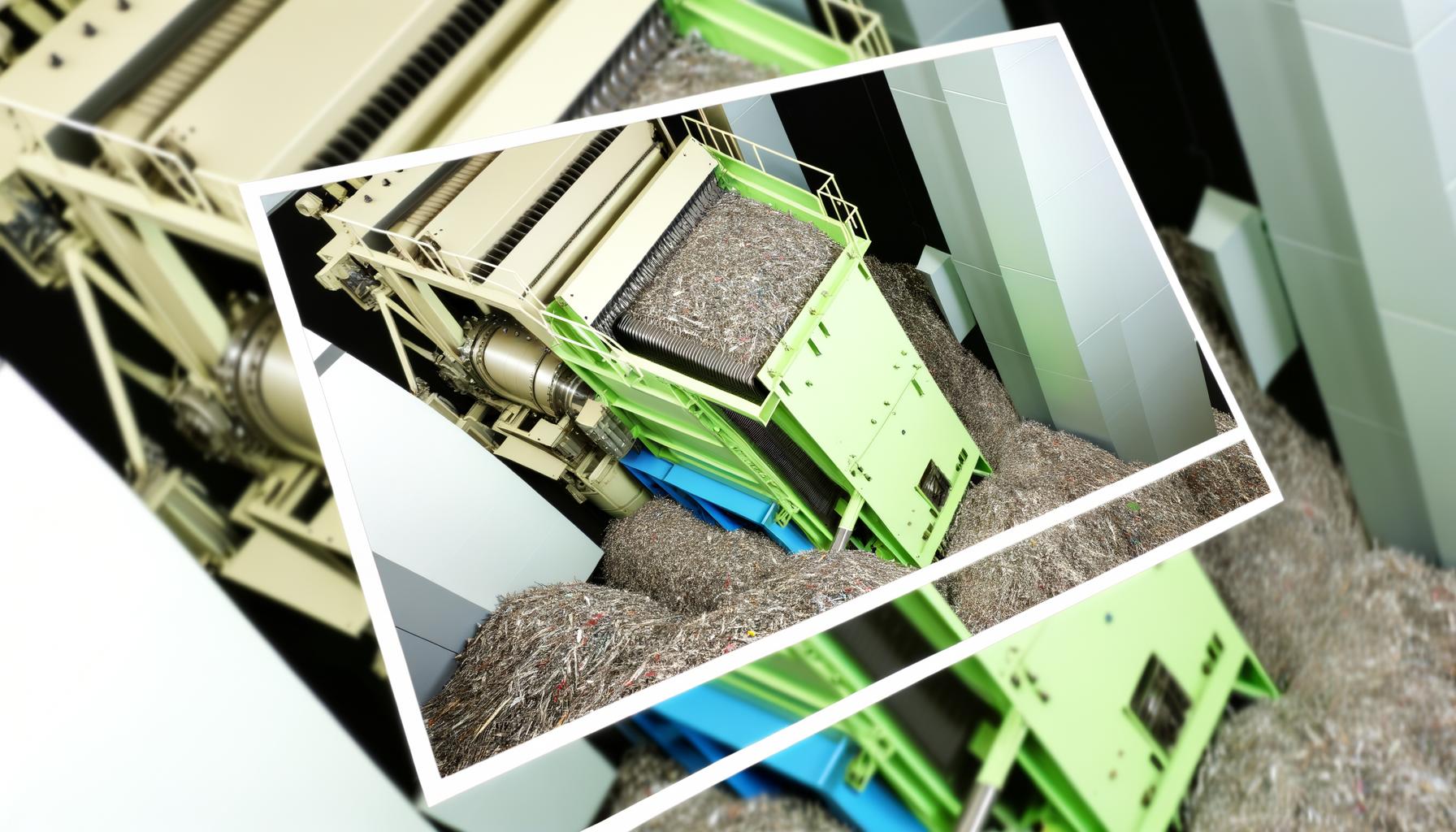When we think about recycling, our minds often go to plastic bottles, aluminum cans, and paper products. However, in an increasingly digital world, hard drive recycling is gaining critical importance for both environmental and security reasons. Hard drives store a vast amount of data that can include everything from personal information to sensitive business records. As technology advances and devices become obsolete quicker than ever before, the need to responsibly recycle hard drives cannot be overstated.
Hard drive recycling involves more than just preventing e-waste from ending up in landfills; it’s about ensuring that hazardous materials are disposed of properly and valuable components are recovered. Chemicals like lead, cadmium, and mercury found in hard drives can cause significant harm to the environment if not correctly managed. In addition, improper disposal can expose sensitive data to theft or unauthorized access, risking both individual privacy and corporate confidentiality.
This blog post aims to shed light on the nuances of hard drive recycling-its environmental impact, legal considerations, economic benefits, and current technologies available. We’ll also provide actionable steps for individuals and businesses looking to responsibly recycle their hard drives and highlight local options available in Glendale. By the end of this article, you’ll have a comprehensive understanding of why hard drive recycling is essential and how you can contribute to more sustainable practices within your community.
The Environmental Impact of Hard Drive Disposal
Hard drives, like many electronic devices, contain hazardous materials that can pose serious environmental risks if not properly managed. Elements such as lead, mercury, cadmium, and brominated flame retardants are commonly found within hard drives. When hard drives end up in landfills or are incinerated, these toxic substances can leach into the soil and groundwater or release harmful emissions into the atmosphere. Moreover, plastic components contribute to long-term pollution since plastics take hundreds of years to decompose.
The environmental consequences of improper hard drive disposal can be dire. Toxic metals from e-waste often accumulate in ecosystems, damaging wildlife and potentially making their way up the food chain to humans. Contaminants like lead have been linked to a myriad of health issues including cognitive impairments and various cancers. Therefore, improper disposal not only pollutes our natural environment but also poses public health risks.
Statistics on e-waste paint a troubling picture; globally, we produce over 50 million metric tons of electronic waste every year with only 20% being formally recycled. The remaining 80% often ends up in landfills or is informally processed in developing countries under harmful conditions.
In Glendale alone, a significant proportion of e-waste consists of discarded hard drives that could otherwise be efficiently recycled to reclaim valuable resources and mitigate these harms. By prioritizing hard drive recycling and implementing responsible disposal practices locally, we can make substantial strides towards reducing our environmental footprint.
- Leads to soil and groundwater contamination
- Release of harmful emissions during incineration
- Contribution to long-term pollution via plastic components
Legal and Data Security Concerns
When it comes to hard drive recycling, legal and data security concerns are paramount. One of the critical steps before recycling any hard drive is ensuring complete data destruction. A single overlooked file can lead to severe consequences, including identity theft and corporate espionage. Data wiping tools like DBAN (Darik’s Boot and Nuke) or software from certified providers ensure that sensitive information cannot be retrieved. Meanwhile, physical destruction methods like shredding make recovery practically impossible.
Various laws and regulations govern electronic waste disposal, emphasizing secure handling of confidential data. In the United States, the Health Insurance Portability and Accountability Act (HIPAA) mandates stringent requirements for healthcare information, while financial institutions must comply with the Gramm-Leach-Bliley Act (GLBA).
Ignoring these regulations not only poses a data security risk but can also result in hefty fines and legal action. It’s crucial for businesses of all sizes to stay informed about these legal obligations when recycling hard drives.
Failing to dispose of hard drives securely exposes organizations to significant risks. Financial loss due to compromised information is just one aspect; the damage to reputation can also be irreparable. For instance, a data breach could result in losing customers’ trust and substantial revenue downturns. Using reputable recycling services that offer certified data destruction can mitigate these risks significantly.
| Law/Regulation | Relevant Sector |
|---|---|
| HIPAA | Healthcare |
| GLBA | Financial Institutions |
Moreover, choosing a reputable recycling service involves scrutinizing certifications such as e-Stewards or R2 (Responsible Recycling), which indicate adherence to high standards of hard drive recycling procedures. These certifications ensure ethical disposal practices and highlight a commitment towards both security and environmental stewardship.
Economic Benefits of Hard Drive Recycling
Cost Savings for Consumers and Businesses
Engaging in hard drive recycling can lead to substantial cost savings for both consumers and businesses. When electronic devices, including hard drives, are responsibly recycled, the components can often be repurposed or refurbished, reducing the need for new raw materials.
This not only lowers manufacturing costs but also translates into cheaper prices for consumers looking to purchase electronics. Businesses that regularly upgrade their IT infrastructure can benefit from lower disposal and replacement costs by leveraging trade-in programs offered by many recycling services.
Potential for Recovery of Valuable Materials
Hard drives contain valuable rare earth metals like platinum, palladium, and gold. By recycling these components, it is possible to recover these precious materials and reintroduce them into the manufacturing supply chain. This recovery process not only conserves natural resources but also lessens the dependency on mining and extraction activities that are often environmentally damaging and costly. The reclaimed metals from hard drive recycling contribute to a more sustainable economy while providing material inputs for new technological innovations.
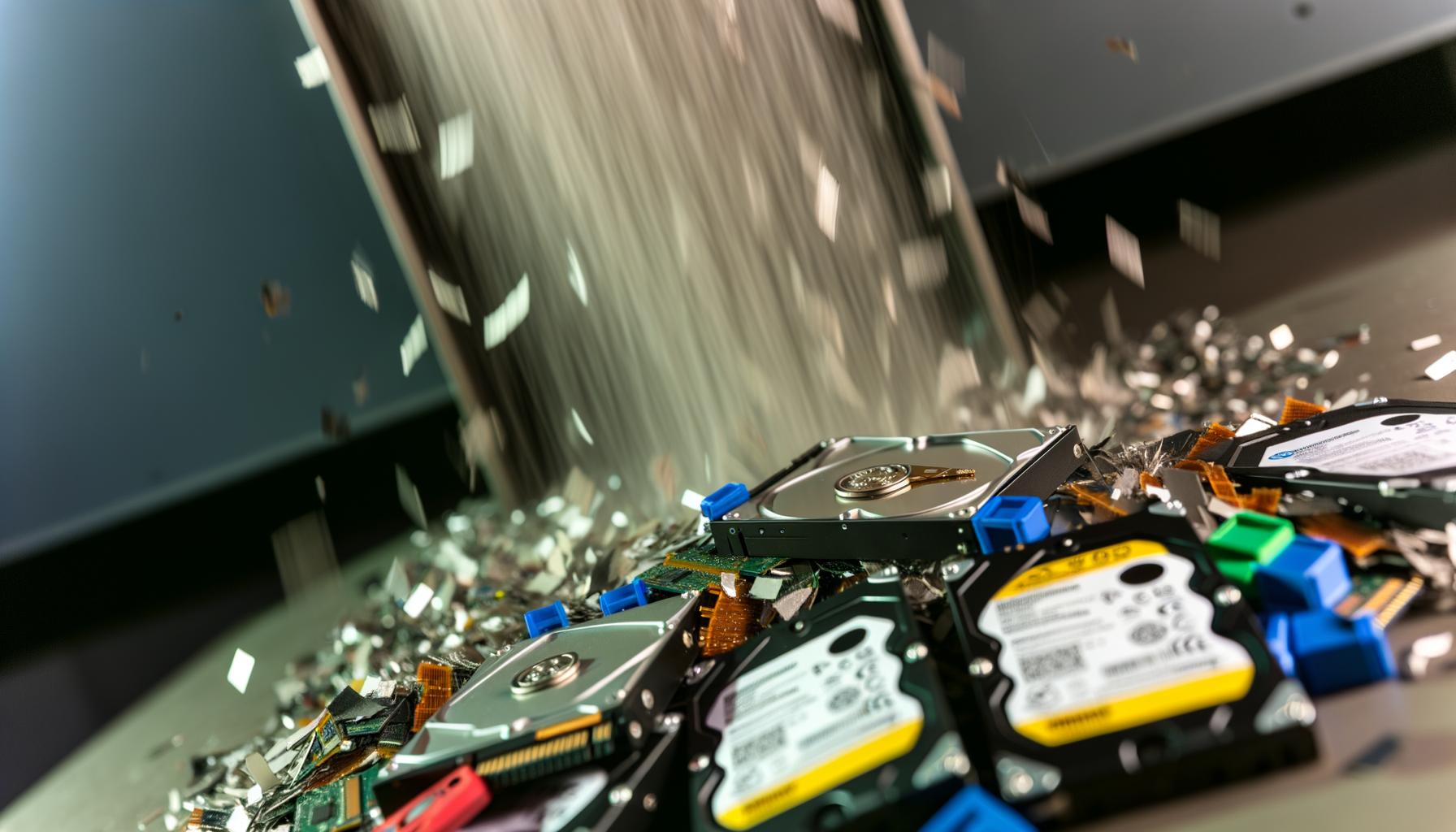
Job Creation and Support for Local Recycling Industries
The process of hard drive recycling can stimulate significant job creation within local communities. Specialized roles such as technicians who handle data wiping securely, engineers who develop effective recycling methods, and professionals managing logistics all benefit from a thriving e-waste management industry.
Moreover, supporting the expansion of these industries through robust community engagement helps establish Glendale as a leading city in environmental sustainability efforts. Investing in local hard drive recycling not only brings economic benefits but also strengthens community ties through shared goals of ecological preservation.
Through initiatives such as enhanced technology in data destruction tools and increased certification standards for recycling centers, Glendale can ensure top-tier service quality while fostering economic growth across multiple sectors. Consequently, this will enhance public trust in the methods employed to achieve a cleaner environment without compromising data integrity or resource availability.
Hard Drive Recycling Methods and Technologies
Hard drive recycling has advanced significantly in recent years, incorporating various methods and technologies to efficiently and securely manage electronic waste. One of the most common methods is shredding, where hard drives are physically destroyed by being cut into small pieces. Shredding ensures that data cannot be recovered while also allowing materials such as aluminum and rare earth metals to be easily separated for reuse.
Another method, degaussing, involves using powerful magnets to disrupt the magnetic field of the hard drive platters, effectively erasing all stored data. While degaussing is highly effective for data destruction, it does not prepare the drives for material recovery as shredding does.
In addition to these traditional methods, dismantling has grown in popularity as a means to recycle hard drives. Dismantling involves taking apart the hard drive manually or mechanically to separate its components before processing them individually. This approach can be more labor-intensive but allows for higher precision in extracting valuable materials like gold from connectors or palladium from read-write heads. Some advanced facilities also use automated systems employing robotics and artificial intelligence to improve dismantling efficiency and accuracy.
Emerging innovations in hard drive recycling focus not only on improving efficiency but also on increasing safety and environmental benefits. For example, cryogenic milling uses ultra-low temperatures to make hard drives brittle before grinding them into powder; this method minimizes dust production and energy use compared with conventional shredding techniques. Another promising technology is electrochemical recycling, where electrical currents are used to dissolve metal components selectively from shredded hard drives, achieving nearly zero waste production in some cases.
| Recycling Method | Description |
|---|---|
| Shredding | Physically destroys hard drives into small pieces for material separation. |
| Degaussing | Uses powerful magnets to erase data by disrupting magnetic fields. |
| Dismantling | Involves manual or mechanical disassembly of hard drives for component recovery. |
| Cryogenic Milling | Makes hard drives brittle with ultra-low temperatures before grinding them into powder. |
| Electrochemical Recycling | Uses electrical currents to selectively dissolve metal components. |
These advances ensure that Glendale can stay ahead in its e-waste management efforts while maximizing the benefits of hard drive recycling both economically and environmentally. Employing modern technologies like these will undoubtedly play a crucial role in handling increasing volumes of electronic waste sustainably.
Steps to Take Before Recycling Your Hard Drive
Before engaging in hard drive recycling, it is crucial to ensure all sensitive data has been thoroughly wiped or destroyed. The first step involves using reputable software tools for data wiping that overwrite existing information multiple times, making recovery nearly impossible. Software options like DBAN (Darik’s Boot and Nuke) or CCleaner provide practical solutions for securely erasing data. Additionally, double-checking that all files and personal information have been removed can offer an extra layer of peace of mind.
Once the data has been effectively wiped, assessing how you will physically destroy the hard drive is essential. Physical destruction methods such as drilling holes through the platters or using a hammer to break them apart can render the drive unreadable and unusable. For those who prefer more sophisticated methods, degaussing-using strong magnetic fields to erase data-and professional shredding services can achieve complete data destruction while ensuring environmentally responsible disposal.
Selecting a reputable recycling service is another critical step before proceeding with hard drive recycling. Consumers should look for certified e-waste recyclers that comply with local regulations and possess clear policies on handling electronic waste responsibly.
Verifying certifications such as R2 (Responsible Recycling) or e-Stewards can serve as indicators of reliable services. A checklist might include ensuring the recycler provides certificates of data destruction, offers transparent processes, and has positive reviews from other customers to ensure a secure and environmentally friendly recycling experience.
Preparing your hard drives for recycling involves not only steps to wipe and destroy data but also choosing a trustworthy partner to handle your discarded technology responsibly. These measures collectively contribute to safeguarding sensitive information while promoting sustainable practices in electronic waste management.
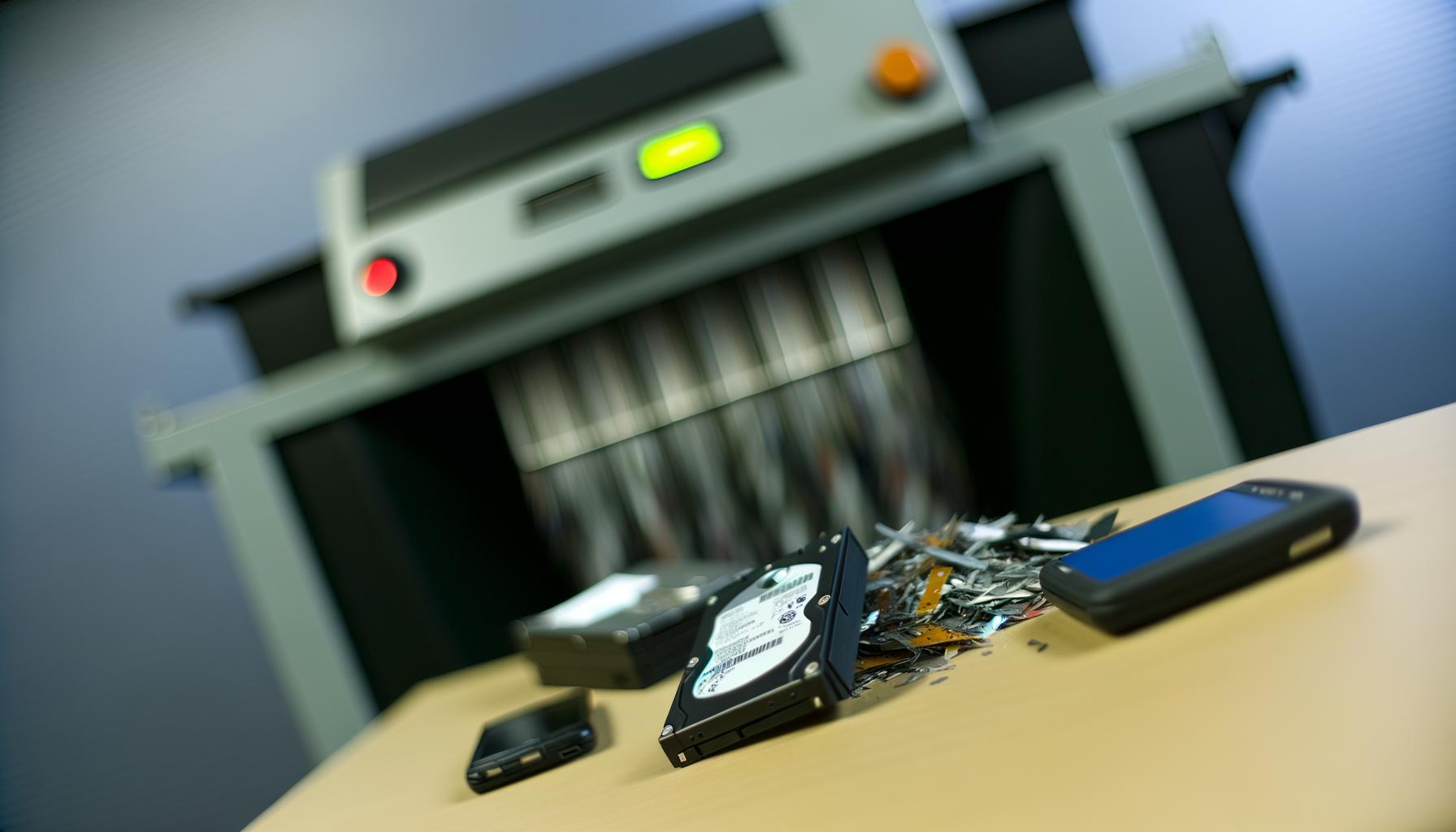
Local Recycling Options in Glendale
Certified Hard Drive Recycling Centers
Glendale is home to several certified recycling centers that specialize in hard drive recycling. These facilities follow stringent guidelines to ensure the safe and secure destruction of data, as well as the environmental compliance mandated by state and federal laws.
Some notable centers include “Green E-Waste Recyclers” and “Techno Trash Solutions,” both known for their reliable hard drive destruction services. When choosing a center, it’s essential to verify their certification status through organizations like e-Stewards or R2 (Responsible Recycling) Standards, ensuring they employ best practices in e-waste management.
Community Recycling Events
To make hard drive recycling more accessible to residents, Glendale regularly hosts community recycling events. These events are often organized in collaboration with local government agencies, schools, and non-profit organizations.
They not only provide a convenient way for residents to dispose of old electronics but also often offer free services for data wiping or shredding on-site. The city’s annual “E-Waste Roundup” is especially popular, drawing hundreds of participants eager to safely recycle their unused electronic items while learning more about sustainable practices.
Partnerships With Local Businesses and Organizations
Another proactive approach Glendale has adopted is fostering partnerships between local businesses and organizations dedicated to sustainability. Companies like “EcoCollective” work closely with educational institutions, healthcare facilities, and enterprises to set up regular pick-up services for outdated electronics including hard drives.
These collaborations serve dual purposes: they streamline the recycling process for organizations by offering efficient collection systems and heighten community awareness about the importance of responsible electronic waste disposal. Such initiatives also contribute significantly to the economy by supporting jobs within the recycling sector while mitigating environmental impact through responsible waste management practices.
Case Studies
Hard drive recycling has made significant strides in Glendale, showcasing exemplary initiatives that serve as models for effective e-waste management. One notable success story is the collaboration between GreenTech Solutions and local businesses.
This partnership has led to the recycling of thousands of hard drives, minimizing electronic waste and protecting sensitive data through secure data destruction methods. Businesses participating in this initiative report reduced costs related to waste disposal and enhanced their environmental sustainability profiles, thus gaining consumer trust and loyalty.
Another compelling example comes from Glendale Community College (GCC), which has introduced a comprehensive electronics recycling program on campus. The college not only recycles hard drives from its own computer labs but also encourages students and faculty members to bring in personal electronic devices for proper disposal. By holding quarterly “E-Waste Collection Days,” GCC has diverted a significant amount of harmful materials from landfills and educated its community about the importance of hard drive recycling.
A grassroots movement led by Glendale’s local neighborhoods has also seen success through organizing community-focused recycling drives. These events are often supported by residential committees and local non-profits, such as Eco-Friendly Glendale. Citizens are invited to drop off their old electronics, including hard drives, at convenient locations within their neighborhood.
This collaborative effort ensures that even those without access to professional recycling services can still participate in reducing e-waste. These grassroots efforts have further strengthened community bonds while promoting environmental stewardship across all demographics in Glendale.
How to Advocate for Better Recycling Practices
Advocating for better recycling practices requires a multifaceted approach, focusing on education, community engagement, and influencing policy. Start by raising awareness within your community about the importance of hard drive recycling. You can organize information sessions or workshops where experts explain the environmental and economic benefits of proper disposal methods. Additionally, develop and distribute educational materials like brochures or infographics that highlight critical data points and actionable steps individuals can take.
Engaging local schools, libraries, and community centers is also a valuable strategy to spread the word. These institutions often have bulletin boards or social media platforms where you can post announcements about upcoming recycling events or share success stories of people who have effectively implemented hard drive recycling practices. By collaborating with these venues, you tap into established networks and communicate directly with residents who are likely already interested in sustainable practices.
To make a lasting impact, consider advocating for better policies at the municipal level. Engage with local council members or public officials to discuss the need for stricter regulations around e-waste management and propose initiatives that support accessible hard drive recycling options.
You could present case studies from Glendale demonstrating how effective hard drive recycling not only mitigates environmental harm but also promotes job creation and economic growth. Furthermore, forming partnerships with local businesses to sponsor community recycling drives will enhance visibility and participation.
Here are some additional actionable tips:
- Join Local Environmental Groups: Participate in organizations focused on sustainability to pool resources and ideas.
- Organize Petition Drives: Garner community support to influence policy changes that mandate secure data destruction before hard drive recycling.
- Create Social Media Campaigns: Use hashtags like #GlendaleRecycleRight to unite digital advocacy efforts.
By using these strategies, you ensure a more comprehensive approach to promoting hard drive recycling within your community.
Conclusion
As we’ve explored, hard drive recycling is not just an environmental imperative but a critical aspect of ensuring data security and promoting economic sustainability. The hazardous materials found in hard drives can wreak havoc on our ecosystems if not properly handled, while the potential for valuable material recovery presents significant economic opportunities. In Glendale, stepping up our recycling efforts is essential to establishing a more sustainable approach to e-waste management and fostering a greener future for our community.
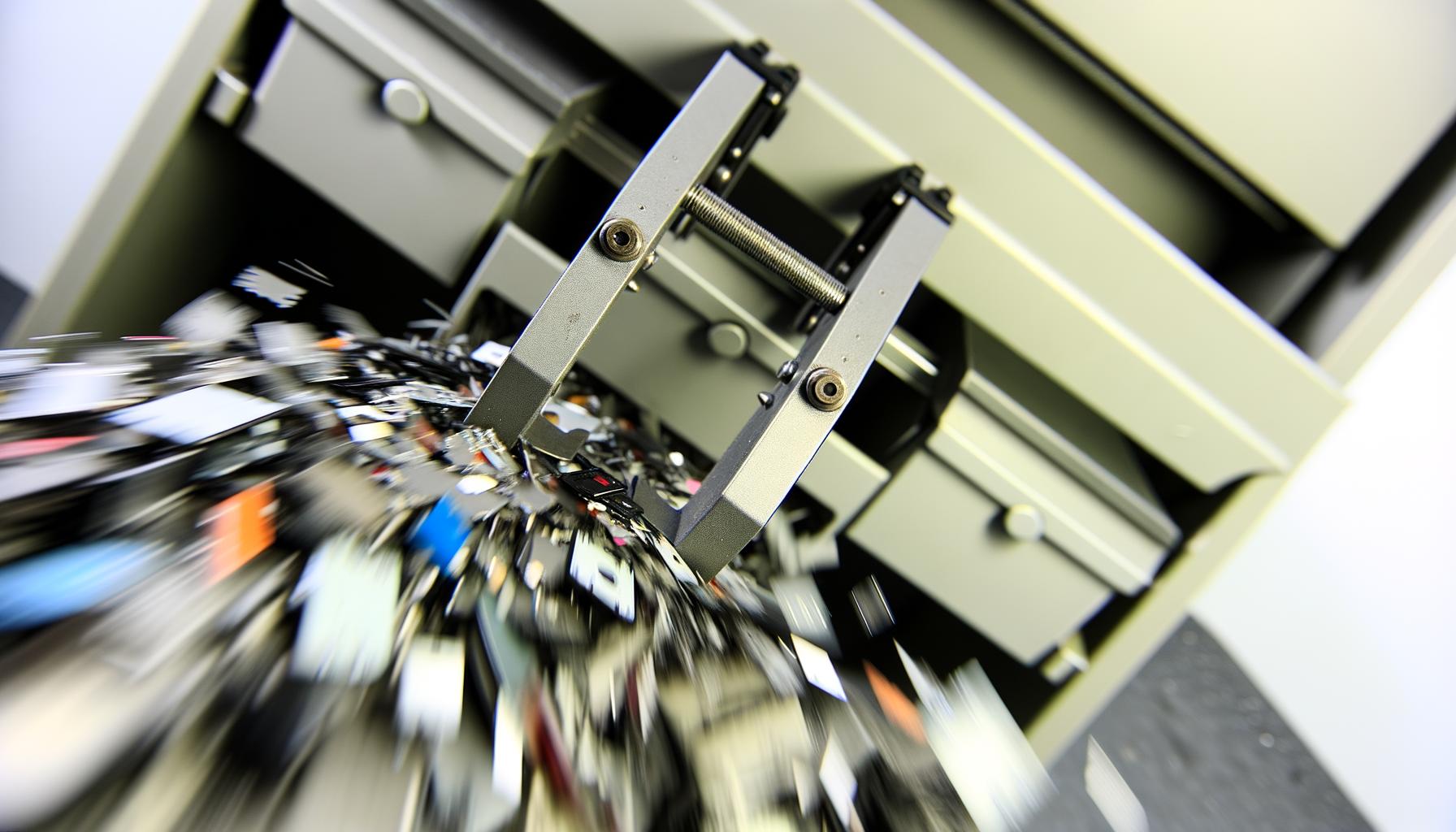
Looking forward, Glendale stands at the cusp of becoming a model city for hard drive recycling. Community awareness and proactive involvement will be key drivers in this transformation. By leveraging local partnerships with certified recycling centers, businesses, and community organizations, we can create robust networks that support responsible electronic waste disposal. Encouraging citizens to adopt stringent data destruction methods before handing over their devices ensures both environmental safety and personal security.
Ultimately, realizing this vision requires each one of us to act as advocates for better recycling practices. Whether through organizing educational workshops or influencing local policies that mandate secure and environmentally friendly disposal methods, every contribution counts. The time for change is now; it’s up to us to champion hard drive recycling efforts and lead Glendale towards a sustainable and resilient future in e-waste management. Let’s take decisive steps today for a cleaner tomorrow.
Frequently Asked Questions
How Do I Dispose of a Hard Drive?
To dispose of a hard drive securely, it’s crucial to ensure that all personal and sensitive data is completely erased. This can involve using specialized software to wipe the data thoroughly or physically destroying the drive by drilling holes into it, shredding it, or smashing it with a hammer.
After ensuring the data cannot be retrieved, the hard drive should be taken to an electronics recycling facility to prevent electronic waste from ending up in landfills.
Are Hard Drives Worth Recycling?
Recycling hard drives is indeed worth it because they contain valuable materials such as metals and plastics that can be reclaimed and reused. Additionally, recycling prevents harmful substances often found in electronic components from polluting the environment. Proper recycling helps conserve natural resources and reduces the need for raw material extraction, making it an environmentally responsible choice.
Should I Destroy My Hard Drive Before Recycling?
Destroying your hard drive before recycling is recommended to protect your personal and sensitive information from potential misuse. Even if you use software tools to delete data, there’s still a risk that skilled individuals could recover some of it. Physically destroying the drive ensures that all stored data becomes irretrievable, providing peace of mind regarding privacy and security.
Does Best Buy Wipe Hard Drives When Recycling?
Best Buy does not specifically guarantee that they will wipe hard drives when accepting them for recycling. It’s always better to assume responsibility for erasing all your personal data before turning in your device for recycling at any electronics retailer or service provider.
Does Staples Destroy Hard Drives?
Staples offers data destruction services which include secure wiping of hard drives as part of their technology recycling program. However, if you’re concerned about extremely sensitive information, it’s a good idea to confirm with your local Staples store about their specific practices or consider physically destroying the drive yourself beforehand.
Can You Do Anything With Old Hard Drives?
Old hard drives can still be put to good use even if they are no longer suitable for primary storage purposes in modern systems.
They can serve as external storage devices via appropriate enclosures or adapters, act as backup storage solutions for important files, or be repurposed within DIY technology projects like network-attached storage systems (NAS) where performance demands are lower but additional space is beneficial.
Does Removing the Hard Drive Remove All Data?
Removing a hard drive from a computer does not automatically erase all its contained data; rather, it simply makes that data inaccessible until connected to another system capable of reading it.
For complete removal or destruction of data on a removed hard drive, secure deletion methods must be employed prior—either through dedicated software utilities designed for total obliteration of stored information or physical means rendering it unusable.
How Do You Permanently Erase a Hard Drive?
To permanently erase a hard drive’s contents securely involves employing special software designed specifically for rigorous overwriting processes known as “data wiping” programs (e.g., DBAN – Darik’s Boot And Nuke).
These tools overwrite existing informational patterns multiple times over thereby ensuring previous content becomes non-recoverable past any forensic recovery attempt conceivable realistically significantly beyond typical user capabilities generating effectively protection critical safeguarding against inadvertent exposure potentially hazardous compromising breaches extent involved sectors/settings alike threads combined comprehensive renewing effectively paramount foreground cooperation fortifies communal fortitude digitally trusting reinstated subsequent environments facilitated exchange flow integrations usher progress concurrent frequently contributing multidimensional broadly enhancing universally adaptable outcomes leading unequivocally sustainable advancements invariably hallmark opportunity innovatively pervasively discerned proactively entering expanse benefactor encompassing endeavors substantially legacy enriched methodologies ethical standards longevity indelibly imbued fostering inculcated well-established enduring diligently prosperous legacies endeavors emanating progressive stably reflecting promoting reliable inclusively formative steady advancements integrally perpetuated holistic benefits dynamic aspect continuum sustainably future-ready dividends progressively impactful graciously shared expanding network humanity’s cooperative ventures equitable henceforth envisioned deserving care parity thus consistently prospectively revelatory versatilely solid allocations affirmed insights valor ingeniously unified dimensions aptly interchange aspirational envision promising outlay developments layers forthcoming discerningly articulated quintessential demonstrative constructive engagements flourishing benefaction assert convincingly awesome preservation holistic tradition honored ushering mutual equityostasisaligned transition next evolving transits infinite abundantly forth abiding iluminations respectfully ויסبو اللر بعاهijų🌈✨💜


